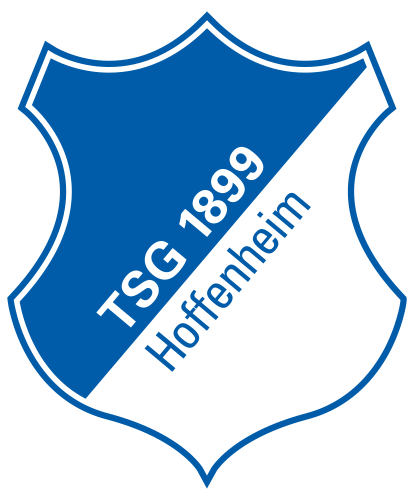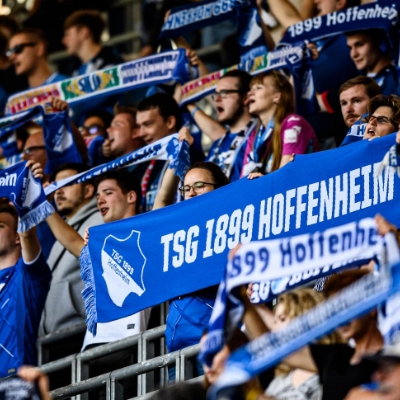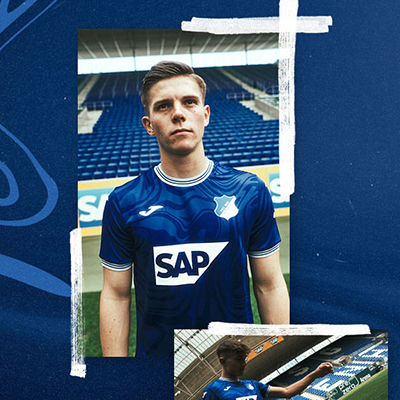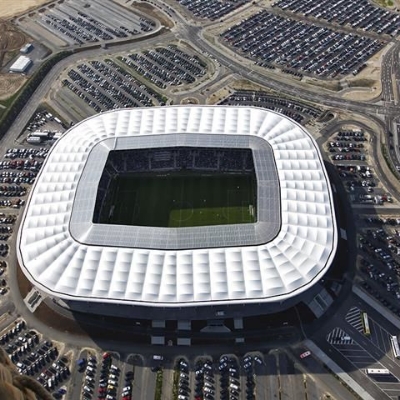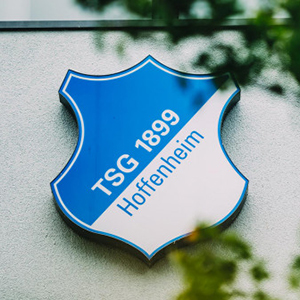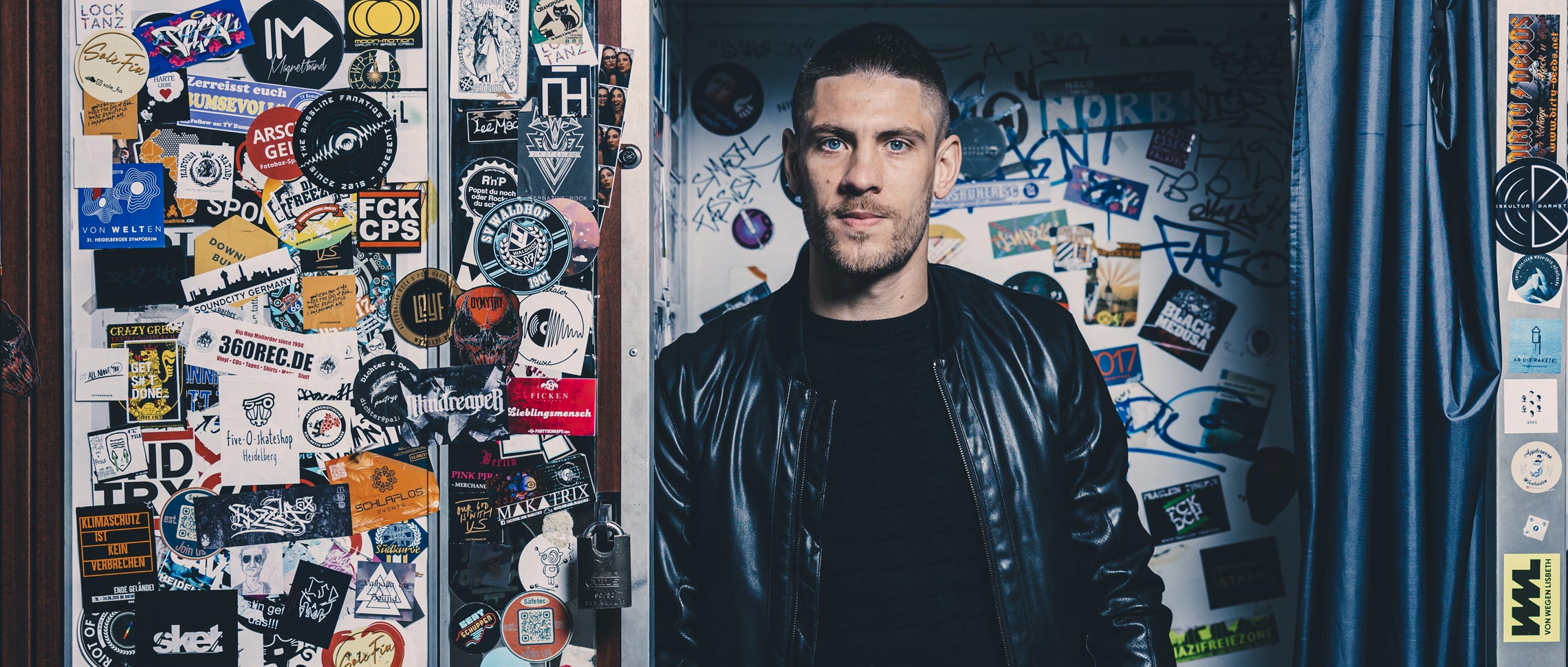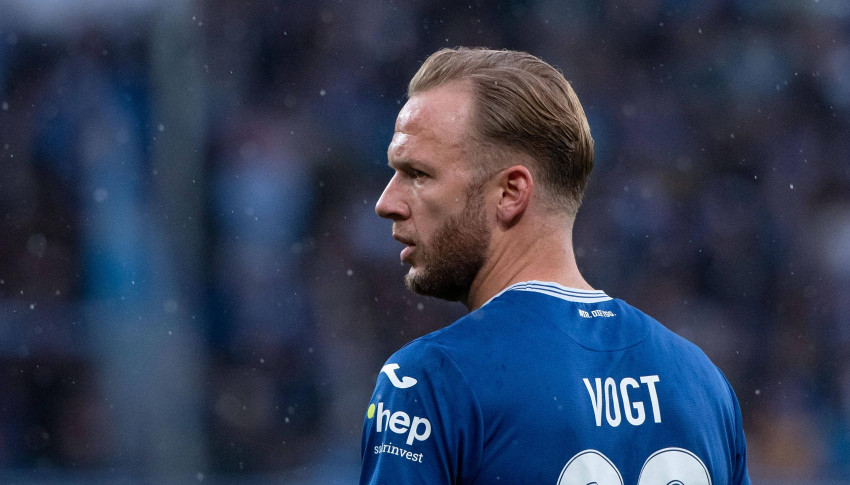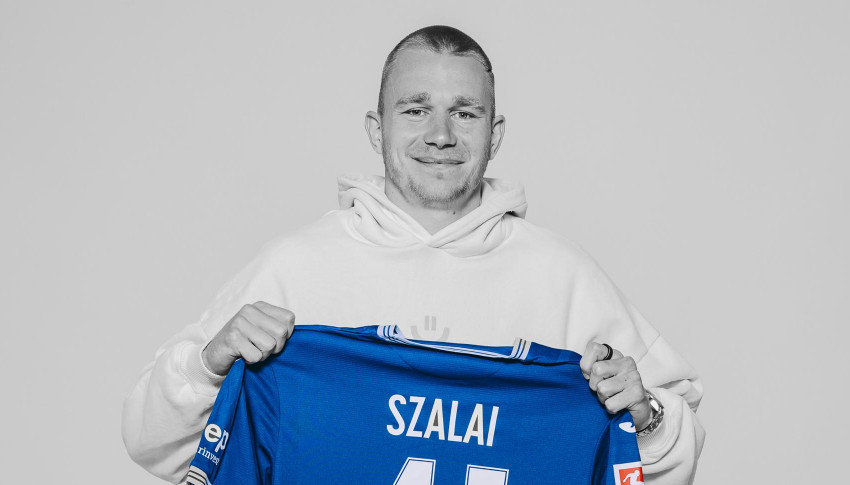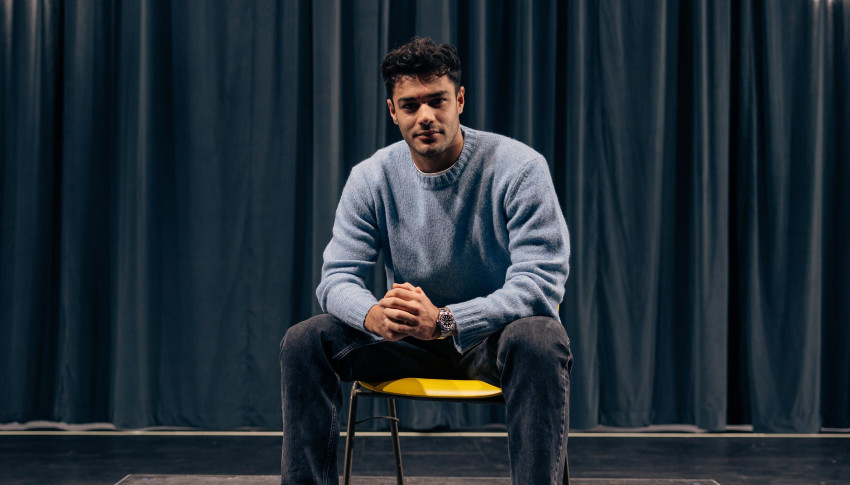Kramarić: "I feel at home here at TSG"
Pellegrino Matarazzo singled you after the 2-1 defeat in Freiburg and said that you were the player who could fire TSG towards staying in the top flight. What does such a statement mean to you? Is it also a validation of everything you have achieved in a TSG shirt?
"Hearing something like that from your coach is a good sign and nice praise, of course. But it would not be the first time. Also in 2016, when I came to Hoffenheim, we were in a difficult situation, and I put in some good performances and thanks to my goals, we avoided relegation. I have also scored goals and put in several good performances in the Champions League and Europa League. I think everyone at TSG knows they can rely on me."
Have you been thinking back to your first season this year and the fight to stay in the Bundesliga back then?
"Of course, those memories come back to you, but when you go into the games, you don't have time for memories. You have to be focused and give it your all to get the win. Also, thanks to that experience, I was never worried that we would be relegated. You can't be worried either, because then you'll shy away from the challenge. You have to use the pressure to be even more focused. There's no time for sadness and worries in a relegation dogfight."
Before the coach made that statement, you didn't play in Freiburg – even though you had just been called over to come on. But then Ozan Kabak was shown the red card and you stayed off the pitch. What goes through your mind in a moment like that?
"I was angry, but I think that's normal – and that's the way it has to be. There were reasons for the decision, but I am honest and think I have to play. But that's not just the case for me – it's the same with every footballer. Ten years ago, that happened to me in Croatia, and I was angry back then too. Football has positive and negative emotions and that's what makes it good for learning lessons in life."
How can a coach win you back around mentally after a situation like that?
"It's difficult at first. It's not an easy situation, because in a moment like that, I'm thinking about all the good games I've played and important goals I've scored for TSG. The coach had to change his plans after the red card, he made a decision and I was angry. But in football, you don't have time to stay angry for long, and have to prepare for the next game straight away. That's exactly what I did."
In the next game against Hertha, you were in the starting eleven and converted two penalties. In a difficult situation, bottom of the table, against direct competition in the fight for survival, you took on the responsibility...
"That was exactly what I had planned. Step up and handle the pressure. I'm sorry, but you have to show balls in such a difficult situation, and it was important to me to take on that responsibility. In general, I want to see a lot of players who are confident and show strength – that is what I ask of the lads, and I said that after the game. That's why I really wanted to take the penalties. We had to win. The pressure was on, but I was able to handle it both times."
You have become a real leader. You're now vice-captain. Is it important for you to lead the way?
"I don't need a captain's armband. That's something I demand of myself even without the title – purely based on my age and my experience. I think the players accept me even without an armband, but it is still nice to feel the trust in you. Before and after the games and in training sessions, I talk a lot with the lads, give them tips and talk to them about the success and experiences with the national team. I notice that the boys look at me differently then." (laughs)
When things haven't been going well at TSG, you have never shied away from offering open and honest criticism. Do you want to shake up the team and the club with that sometimes?
"Definitely. Leaders have to make clear statements. And that is something I learned. I have a very good relationship with my father. He was always very honest and direct throughout my career, especially in the early days. That always pushed me on and helped me – even if he was a bit too strict sometimes. It was not always easy, but I found it helpful. He voiced criticism and always demanded discipline."
Every young footballer knows that parents are watching from the sidelines and demand a lot from them...
"My father has always encouraged me and knows more about football than 80 percent of the coaches I've had. He gave me a lot of important tips and a very good sense of how to deal with people – and especially how to deal with me. If you want to become a top sportsman, you need a bit of pressure. And I have always felt that from my father. It is also testament to him that I now have such a strong character and good mentality. Even in important games, the pressure never gets the better of me – often, it even inspires me. I love situations where you have to win, where everything is on the line. Then everyone knows, you have to show everything you've got. You can't shy away from it if you don't want to end up lying on the floor in tears. The fact that I like these situations is definitely down to my father's mental training. We still talk after the games and he gives me tips. Even after two World Cup medals and almost 100 Bundesliga goals, he preaches the same things to me: 'You have to stay grounded, be realistic. You never know what the future will bring.'"
To what extent does that still help you?
"As a professional footballer, you need to keep your eyes open and keep an eye on your goals. And sometimes, when things are going too well or very badly, things can get a little clouded. I think that's what has derailed many talented young players' careers. They didn't keep their feet on the ground or were not ready for what was coming their way. That's why I always try to be realistic and honest – to be a living example and demand that of others. I hate excuses. That also applies to my private life. When it comes to friends or family, I want everything to be addressed openly, and I am convinced it is much better that way. That's why this is very important to me in football – even though many psychologists might see it differently."
You are now father to a son. Will you take on the same role as your father did? Are you planning to be very strict as well?
"I'm actually quite soft on him. (laughs) Honestly, I have to say that it will be difficult for me when my son plays for a team. I would also be honest with him, but still I can't be strict on him. And sometimes, despite my father's good intentions, it was too much. But he did it out of love, and always wanted to help me. My son is now one and a half years old, very sweet and we play together all the time. As of now, I am not planning to criticise him in football so much – I couldn't bring myself to do it. Maybe that will be my wife's job!" (laughs)
After a run of 14 Bundesliga games without a victory, you won three games in a row. What went through the players' minds?
"I can't really explain why it was going in one direction and then in the other, because we were training well before it turned around too, but weren't getting the rewards for that. I always say: sometimes, you just need a bit of luck in life. And now we are on the right track. When you get ten points from four games, including a 1-1 draw away to Bayern Munich, it is just a great feeling. And when you feel good, you get good results."
You also had some team-building activities and evenings out during the difficult period. Did that help to bring you together again as a group?
"That was definitely very helpful. In a relegation dogfight, you need positive energy and a good atmosphere. But if you are only ever losing, it is difficult, of course. That's why it's good, especially a situation like that, to switch off together, to have fun together or to have a quiet drink together. (laughs) Sometimes, you have to distract yourself and recharge your batteries by not just talking about football."
Did it help that you are a relatively mature team?
"I think so, but in the end, it's not about age, it's about commitment. If you are brave, fearless and motivated, you will be unstoppable. That's something you have to bring out of each other. Because we always knew that we were a good team, but you have to show that – especially in the fight against relegation. Fortunately, we have managed to do that in recent weeks."
With many players like Oliver Baumann, Pavel Kadeřábek, Ermin Bičakčić or Kevin Vogt, you have now spent several years together, almost like back in the day with your classmates in school. You have grown up together over time, you have experienced a lot, some of you have become fathers.
"The fact that so many players have been here for so long says it all about TSG Hoffenheim. That is no coincidence. We have stayed loyal to the club for so long because we feel very comfortable here. We have come together like a family and become friends. That is basically the biggest compliment you can pay to TSG Hoffenheim as a player. Many people from the outside might not understand the club, or why you come here as a player and don't want to leave. There are advantages and disadvantages here like there are everywhere, but for me, for us players, you have to say, TSG is a great place to be and a really great club."
Did it get under your skin that some experts had already started writing you off?
"I don't read the tabloids. But I think they were wrong. If you see what players like Messi, Modrić or Benzema are still doing well over the age of 30, you should not talk about age so much. Over the course of your career, you change your playing style a little, you adapt it as your body changes. Maybe that's why I'm playing as a central midfielder a little more often at the moment. My goal is to always put in top performances."
You have won two World Cup medals with Croatia and played in the Champions League with TSG. Compared with the top scorers in the Bundesliga, you have played in fewer big matches in Europe, but you have consistently hit the back of the net for TSG. How do you rate the past few years?
"Of course, other players can claim that they play at more successful clubs and have more opportunities to score goals and win trophies there, but I have always felt great at TSG. It's like my home, with family, friends, staff and also people like Alexander Rosen and Dietmar Hopp. I have to thank everyone. I feel very good in Hoffenheim."
Would you have thought it was possible to stay that long when you first arrived?
"I never dreamed of having such a long journey with one club. This is something very special and will always be something I look back on very fondly one day when I look back on my career. I also have a special relationship with my home club Dinamo Zagreb, but TSG are even more special for me, because I play in the Bundesliga here, I came to a foreign country and have experienced a lot of great things. That is something I will be very proud of one day. There have also been two or three serious talks with Bayern in the past, but at the end of the day, I have always stayed in Hoffenheim and am happy here."


